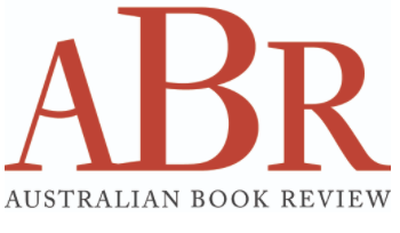A Narrative of Denial
Australia and the Indonesian Violation of East Timor
A Narrative of Denial
Australia and the Indonesian Violation of East Timor
Australia and the Indonesian Violation of East Timor
Australia and the Indonesian Violation of East Timor

How Australia helped Indonesia occupy East Timor
The Indonesian invasion of East Timor in 1975 led to a prolonged conflict, severe human rights abuses and a large loss of life. A new book uncovers how the Whitlam and Fraser governments initially pushed Indonesia to intervene in East Timor and then campaigned to cover up the worst abuses of the occupation.
ABC Late Night Live
Andrew Peacock's Timor Legacy by Peter Job
Since his death on 13 April, tributes to former Australian foreign minister and leader of the federal opposition Andrew Peacock have flowed from across the political divide. He has been remembered as a huge figure who left an “indelible” mark on Australia in the 1970s and 1980s. There is, however, one vital aspect of Peacock’s legacy that has not received attention: the role he played in establishing and supporting the Fraser government’s position on East Timor. More specifically, supporting the attempted Indonesian annexation, propagating a false narrative about it to the Australian public and the international community, and protecting the Suharto regime from scrutiny in a situation of dire human rights abuses and loss of life.
The Interpreter
Book Review: A Narrative of Denial
A Narrative of Denial is an important academic work. It is also an indictment of Australian policy on East Timor during the Fraser years. As such, it is a fitting complement to the Chega! report which includes East Timor’s own assessment of this period. It is to be hoped, however, that it is not ignored in official circles as Chega! has been.
Inside Indonesia
Inglorious diplomacy: Australia’s sorry history in Timor
Peter Job, a former East Timor activist, has written a careful, dispassionate account of the stance of Gough Whitlam’s and Malcolm Fraser’s successive governments in relation to Portuguese East Timor. He has consulted a commendably wide range of oral and written sources, interviewing, for example, several retired senior Australian officials formerly engaged in the design and implementation of Timor policy.
Australian Book Review
BOOK REVIEW: A Narrative Of Denial
IF YOU ARE looking for a good read that will give you, the happy reader, a no-small glow of pride in how Australia, the country of the “fair go”, applies itself on the international scene in general, or perhaps more locally – say in that area just north of us, East Timor – then you are in for a crashing disappointment.
Independent Australia
BOOK REVIEW: A Narrative Of Denial
As the title indicates, this book is not kind to the Australian politicians and diplomats who shaped policy on the former Portuguese Timor between 1974 and 1983. Peter Job was not predisposed to be kind: in 1978 he was in the bush outside Darwin manning a clandestine radio link to the Timorese resistance, trying to pierce their fog of denial.
The Saturday Paper
WHAT DID EAST TIMOR DO TO DESERVE US?
The political establishment in Canberra often talks about the importance of human rights—as far as they relate to other people’s obligations. It has taken a position towards China of almost howling indignation, huffing at the treatment of the Uighur population with accusations of genocide. It has taken issue with Beijing’s security measures against the residents of Hong Kong, and the territorial sanctity of Taiwan. But such righteousness grows muted when it comes to countries closer to home. There, the calculations are steelier, the bleeding hearts fewer.
ARENA
Book Review: Narrative of Denial: Australia and the Indonesian Violation of East Timor
Australian politicians frequently conflate human rights with the “rules-based system.” With its large-scale internment of Uyghurs and other Turkic minorities in Xinjiang Province, and its moves against democracy protests in Hong Kong, China is their current main target. But as the Chinese willing point out, these admonitions are selective.
Australian Institute of International Affairs
Peter Job: "What Australia did to Timor is unacceptable."
While the Timorese people democratically elected José Ramos Horta as their fifth president of the republic after gaining its independence 20 years ago, SBS interviewed Peter Job, an Australian academic and author of the recently published book - "A Narrative of Denial". This book is an extensive study of the Australian policy during the invasion and occupation period, from 1975 to 1983, when the worst atrocities occurred in East Timor.
SBS Portugese
Australia Helped Indonesia Cover Up Atrocities in East Timor
After East Timor declared independence from Portugal in 1975, Indonesian dictator Suharto ordered an invasion and tried to crush the national liberation movement. Australia knew Indonesian forces were carrying out massacres — and helped hide it from the world.
Jacobin